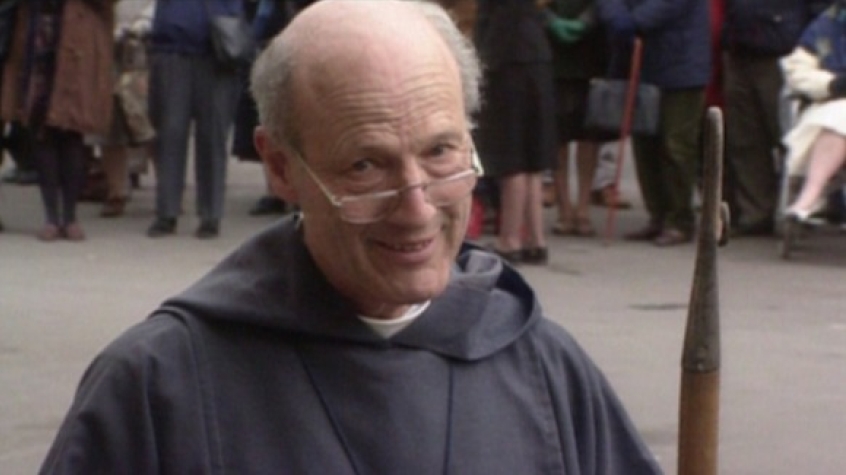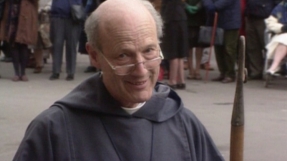Former Church of England bishop Peter Ball was finally brought to justice when he was jailed today for 32 months after pleading guilty to sex abuse of 18 young men.
He will serve just half the sentence before being released on licence, the Central Criminal Court at Old Bailey in London was told.
The sentence comes 22 years after a lord chief justice, members of Parliament, a member of the royal family and public school headmasters used their influence to help stop him being prosecuted for his crimes. Instead, he was given a caution.
Bobbie Cheema QC, for the prosecution, said: "The police report that accompanied the papers sent to the CPS in 1993 after the police had done their work stated they had received telephone calls supportive of Peter Ball from many dozens of people – including MPs, former public school headmasters JPs and even a lord chief justice." In addition, about 2,000 letters of support were received for the bishop.

Ball was ordained as a priest in 1957 and was consecrated as Bishop of Lewes in 1977. His young victims were guests in his home in East Sussex as part of his Give a year to Christ foundation, an Anglican religious order he had helped set up.
He was a charismatic and influential character on the Anglo-Catholic wing of the church. He dressed in long robes and a cowl like those of a monk and the young men who joined his community regarded him as a living saint. Chema said: "There was an austere regime of devotion to the community with rituals." These rituals helped him commit his crimes. In 1992, Ball took one victim to the chapel at midnight, where he told them they should say the psalms naked in order that he should feel the cold. The court heard he also attempted to whip and beat his victims.
She said: "He was highly regarded as a godly man who had a special affinity with young people. The truth was that he used those 15 years in the position of bishop to identify, groom and exploit sensitive and vulnerable young men who came within his orbit. For him, religion was a cloak behind which he hid in order to satisfy his sexual interest in those who trusted him."
Cabinet ministers and even a member of the royal family sent letters of support when the allegations first came to light. Among the charges he escaped facing was that of indecent assault of Neil Todd, who subsequently killed himself. The director of public prosecutions who decided not to charge him in 1993 with the abuse of Todd was Barbara Mills. Even though he resigned from his position as Bishop of Gloucester after accepting the caution, the then Archbishop of Canterbury, now Lord Carey of Clifton, allowed him permission to officiate for a further three years in the Truro diocese.
In court, Ball said he was told by a police officer: "Bishop, it's all over", when he asked for a guarantee that his original caution would include all other offences of the same nature. Lord Carey then made a phone call to the Crown Prosecution Service and was was told: "He has resigned. He is out of it. The matter is closed. We are not going to take anything any further."
At the time Bishop Ball, now aged 83, was a friend of the Prince of Wales. Ball rented a cottage from the Duchy of Cornwall after the 1993 caution.
He finally pleaded guilty to two indecent assaults on two young men and misconduct in public office relating to the abuse of 16 young men in September this year.
Ball had argued he was not fit to stand trial. Last month his guilty plea was accepted via video link but today he appeared personally in court.
Richard Smith QC, in mitigation, said a pre-sentence report had highlighted Ball's "profound and deep" remorse. The report also identified difficulties in his serving a prison sentence because of his "physical and emotional needs".
The present Archbishop of Canterbury Justin Welby has commissioned a review into how the Church of England handled his case when the allegations first arose.
The Church of England first commissioned a review of Ball's case in 2008 and in May 2012 Lambeth Palace referred papers to Sussex Police. By 2013 when he was charged there were 14 new complainants. Some charges were left to lie on file.
It emerged this week that legal action is now under way against the Diocese of Chichester. Four victims will be claiming hundreds of thousands of pounds in damages, said David Greenwood from Switalskis Solicitors.
Greenwood told the Press Association that, given the "wealth of evidence", the case was unlikely to reach court and would probably end in a settlement. The amounts could vary between a few thousand pounds and "hundreds of thousands of pounds".
"Obviously no amount of money will compensate for what happened to them and each claimant has different circumstances: some have lost opportunities for careers, some have had lots of anguish and torment personally," he said.
In addition, a Church of England vicar has revealed that Ball tried to blackmail him into having sex if he was going to allow him to be ordained. Rev Graham Sawyer visited the former bishop as a teen in the 1970s, when Ball tried to take off his clothes and requested an "act of commitment" for his ordination to proceed.
Sawyer told the BBC: "He nurtured, or probably a better word is 'groomed', me. That went on for a number of years. His behaviour towards me became more and more inappropriate."
He added: "The abuse, for want of a better word, started with very heavy suggestions that I remove my clothes and be completely naked in front of him. That developed into him trying to take my clothes off for me. He kept on saying that he was waiting for a real act of commitment from me to show that I was serious about being ordained. It was very clear to me that if I did not have sex with him I would not get ordained."
Sawyer decided not to seek ordination at that time. "I just found his sexual advances and his intimidation so appalling that I decided that I had to get away. Bishop Peter Ball is a monster and should as a matter of justice be sent to jail for the rest of natural life."
Keith Porteous Wood, of the National Secular Society said: "Ball's case is a disgraceful catalogue of the legal system letting him off at every juncture.
"Abuse victims' lives are often ruined by the abuse, they are much more likely to be substance abusers and vulnerable to suicidal impulses. One of Ball's victims, Neil Todd, killed himself and another, Graham Sawyer of Briercliffe, said that he had wished at times that he were dead. He was adamant that 'people at the highest levels of the Church are more concerned with 'saving face'."















